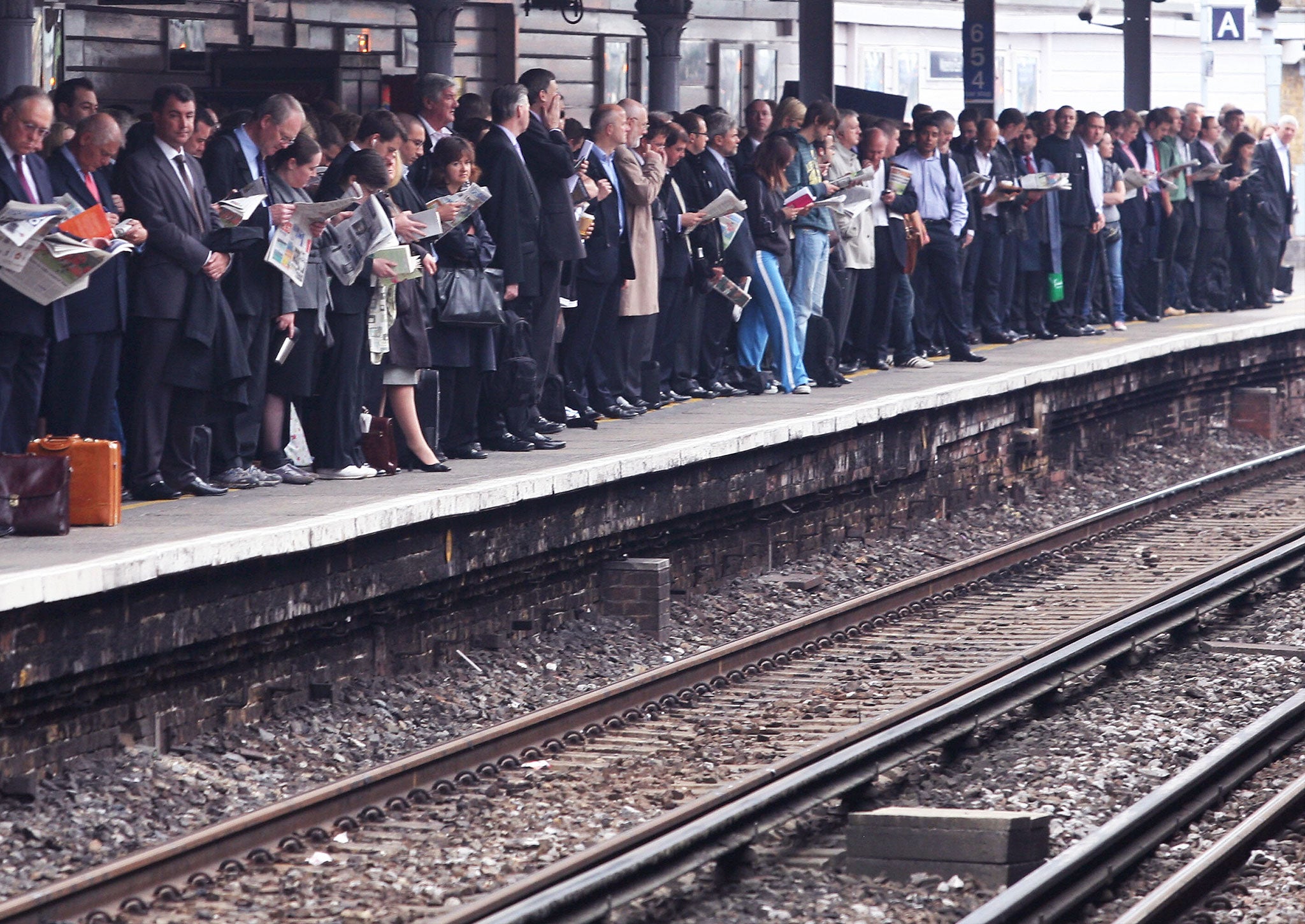Our rail system is broken, and nationalisation has already been proven to work — so what are we waiting for?
Train fares in the UK are some of the most expensive and inefficient in Europe, yet the Government doesn't seem to care

Your support helps us to tell the story
From reproductive rights to climate change to Big Tech, The Independent is on the ground when the story is developing. Whether it's investigating the financials of Elon Musk's pro-Trump PAC or producing our latest documentary, 'The A Word', which shines a light on the American women fighting for reproductive rights, we know how important it is to parse out the facts from the messaging.
At such a critical moment in US history, we need reporters on the ground. Your donation allows us to keep sending journalists to speak to both sides of the story.
The Independent is trusted by Americans across the entire political spectrum. And unlike many other quality news outlets, we choose not to lock Americans out of our reporting and analysis with paywalls. We believe quality journalism should be available to everyone, paid for by those who can afford it.
Your support makes all the difference.Following Friday’s rail fare hikes, a commuter from Brighton to London on £27,200 a year will be spending 17 per cent of their salary on a monthly season ticket.
Meanwhile, the train companies are turning over an estimated 90 per cent of their profits to shareholders, while receiving taxpayer subsidies to the tune of £1.2bn a year.
So it’s no wonder that people are gathering at train stations around the country to protest against the latest rail fare hikes and to call for re-nationalisation of the UK’s rail industry.
However the re-privatisation of the publicly-owned East Coast mainline – which returned profits of £1bn to the taxpayer, while improving efficiency and passenger numbers – proves the government is committed blindly to privatisation despite whatever counter arguments reality slings at it.
As it turns out, that little thing called "reality" has some pretty heavyweight arguments on its side. We just have to turn to Europe, where predominantly state-owned rail services consistently outperform the UK’s.
Let’s start with fares. A report by Transport for Quality of Life shows that UK rail fares are consistently higher than Germany, Switzerland, the Netherlands, Sweden, Italy, Spain and France, and across all types of fares. These are all countries where the rail networks are over 80 per cent publicly owned.
Perhaps the UK's extortionate prices would be justified if it led to a greater quality and efficiency of service. But the government-commissioned McNulty report found a 40 per cent "efficiency gap" between the UK and Europe’s rail systems. Other independent reports in 2010 and 2012 found the UK’s rail system amongst the worst in Europe for efficiency and comfort.
So why do we have one of the most expensive and worst-run rail systems in Europe? And how on earth can the Government continue to oppose re-nationalisation?
The answer to the first question is that we have an overly-complex and fractured rail system. It has too many operators, a web of complex tiers of contractors and sub-contractors, and an admin-heavy, bureaucratic infrastructure, which has cost us £11bn in public funds.
The publicly owned systems in Germany, Switzerland and other European countries operate on a far simpler system. They have one dominant publicly owned train operator, and one publicly owned rail infrastructure manager. By comparison, the UK has 23 train operators and a hopelessly atomised infrastructure.
Which leaves us only with the second question: why is the Government so opposed to a publicly-owned rail system? A year ago you’d be forgiven for thinking it was to keep Network Rail’s £34bn debt off their balance sheet. However in September, following an EU edict, Network Rail was more or less forced to be classified as a public body (although according to the Financial Times, the Government are already planning ways to move the debt off the balance sheet once more).
Perhaps then it is the cost, which in 2004, Blair and Brown claimed would be £22bn. But Caroline Lucas’s Railways Bill, which will get its second hearing in the House of Commons on Friday, would avoid large one-off payouts by a gradual re-nationalisation, where franchises are bought up when they expire or fail.
On top of this, we'd save money on the huge subsidies already paid to private train companies either directly or through Network Rail handouts. Besides, the example of East Coast mainline shows that publicly-operated train companies can actually make money for the country rather than just swallowing it.
So what else could it be? Embarrassment that the Tory policy of privatising everything doesn’t always work? Or, more cynically, that it fits in with the overarching Tory agenda of siphoning money from the bottom to the top half of society, via taxpayer handouts to private corporations?
I know which one I think. But then again, I’m a bit of a conspiracy theorist.
Join our commenting forum
Join thought-provoking conversations, follow other Independent readers and see their replies
Comments